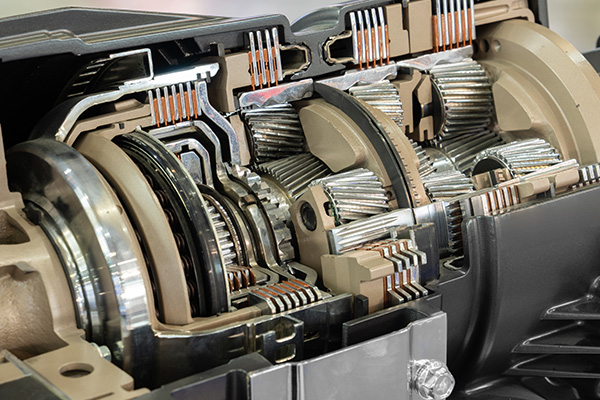
Modern vehicles are constantly evolving, and one of the most noticeable changes in recent years is the number of gears in automatic transmissions. Decades ago, 3- or 4-speed transmissions were common. Now, it’s not unusual to see vehicles with 8, 9, or even 10 speeds. Some car owners are left wondering: does more always mean better?
Let’s explore why transmission gear counts have increased, how they impact performance, and whether having more gears always benefits your drive.
How Do More Gears Actually Help
A transmission’s job is to manage power delivery from the engine to the wheels. It utilizes different gears to maintain the engine's optimal speed—whether you're accelerating, cruising on the highway, or climbing a hill.
More gears allow the engine to stay closer to its optimal RPM range more of the time. That can lead to smoother shifts, better fuel economy, and improved acceleration. For example, a 10-speed transmission can make smaller jumps between gears, keeping the ride smooth and the engine efficient.
The Push for Efficiency
Fuel efficiency regulations and consumer demand have driven manufacturers to find ways to stretch every drop of gasoline. One way to do that is by designing transmissions that offer more gears, which can help engines run at lower RPMs during highway driving.
This is especially noticeable in vehicles with turbocharged engines or smaller displacement engines, which benefit from staying within narrow power bands. A higher gear count helps make that possible without sacrificing acceleration or drivability.
Are There Downsides to More Gears
While more gears can improve efficiency and performance, they also come with trade-offs. One concern is complexity. More gears mean more components, which increases the risk of wear or failure over time. In some cases, these transmissions are more expensive to repair or replace.
Drivers sometimes report that higher-speed transmissions seem to “hunt” for the right gear more often, especially in stop-and-go traffic. This can create a sensation of constant shifting or hesitation, which may feel less natural than older 5- or 6-speed setups.
It’s also worth noting that not all high-gear transmissions are created equal. A well-tuned 6-speed transmission might feel smoother and more responsive than a poorly calibrated 9-speed one.
Continuously Variable Transmissions (CVTs)
Some vehicles skip traditional gears altogether and use CVTs (Continuously Variable Transmissions). These use pulleys and belts to create an infinite number of gear ratios, which can improve efficiency. However, CVTs have their own quirks—some drivers dislike their “rubber band” feel, and they can be costly to repair when they fail.
Understanding your vehicle’s transmission type can help you set proper expectations for performance and longevity.
What About Manual Transmissions
Manual transmissions have fewer gears but remain popular among driving enthusiasts. They offer a direct connection between the driver and the vehicle and are often simpler and cheaper to maintain.
That said, fewer new vehicles are being produced with manual options, especially as automatics become more advanced. For those who love the driving experience and don’t mind shifting themselves, manuals still offer great control with fewer parts to worry about.
Does Your Driving Style Make a Difference
Yes. A driver who mostly commutes on highways may benefit more from a high-gear transmission than someone who spends most of their time in city traffic. Similarly, those who frequently tow or haul heavy loads may prefer fewer gears with stronger components for durability.
Transmission performance also depends on how well it’s maintained. Regardless of how many gears your vehicle has, timely fluid changes and routine inspections are critical for keeping it running smoothly.
Expert Transmission Help in Marysville, WA
At Bud’s Auto Repair & Transmission in Marysville, WA, we’ve worked on all kinds of transmissions—from simple 4-speeds to the latest 10-speed automatics and CVTs. Whether you're concerned about shifting issues, fluid leaks, or general transmission performance, we’re here to help keep your vehicle running at its best. Bring your car in today for trusted diagnostics and honest service.